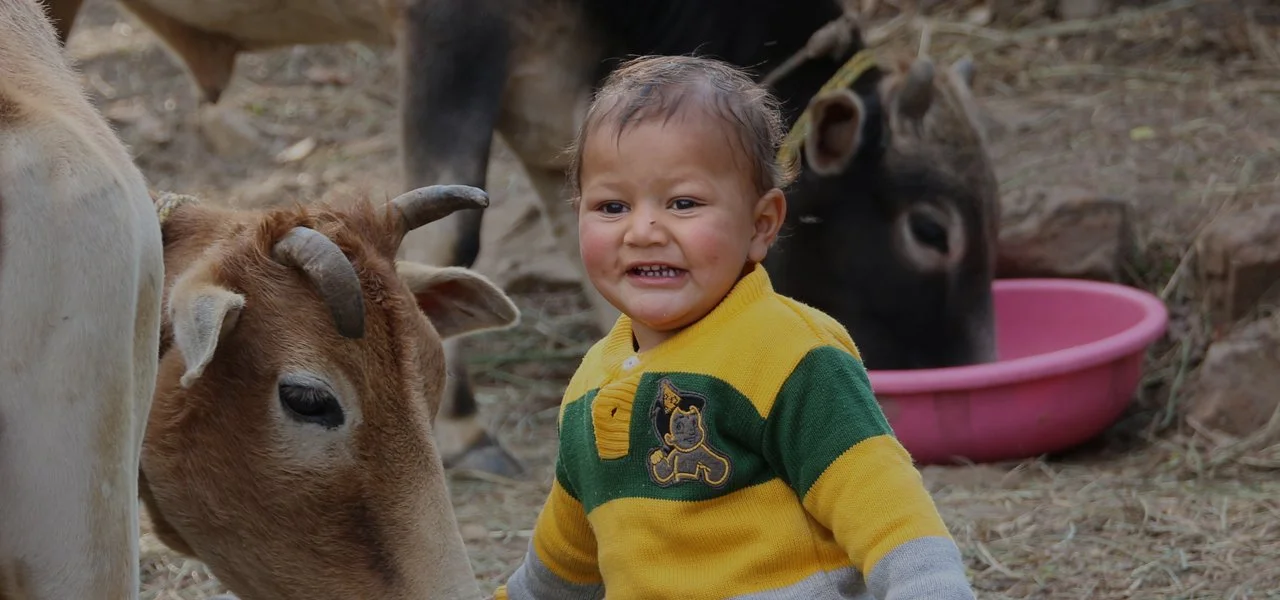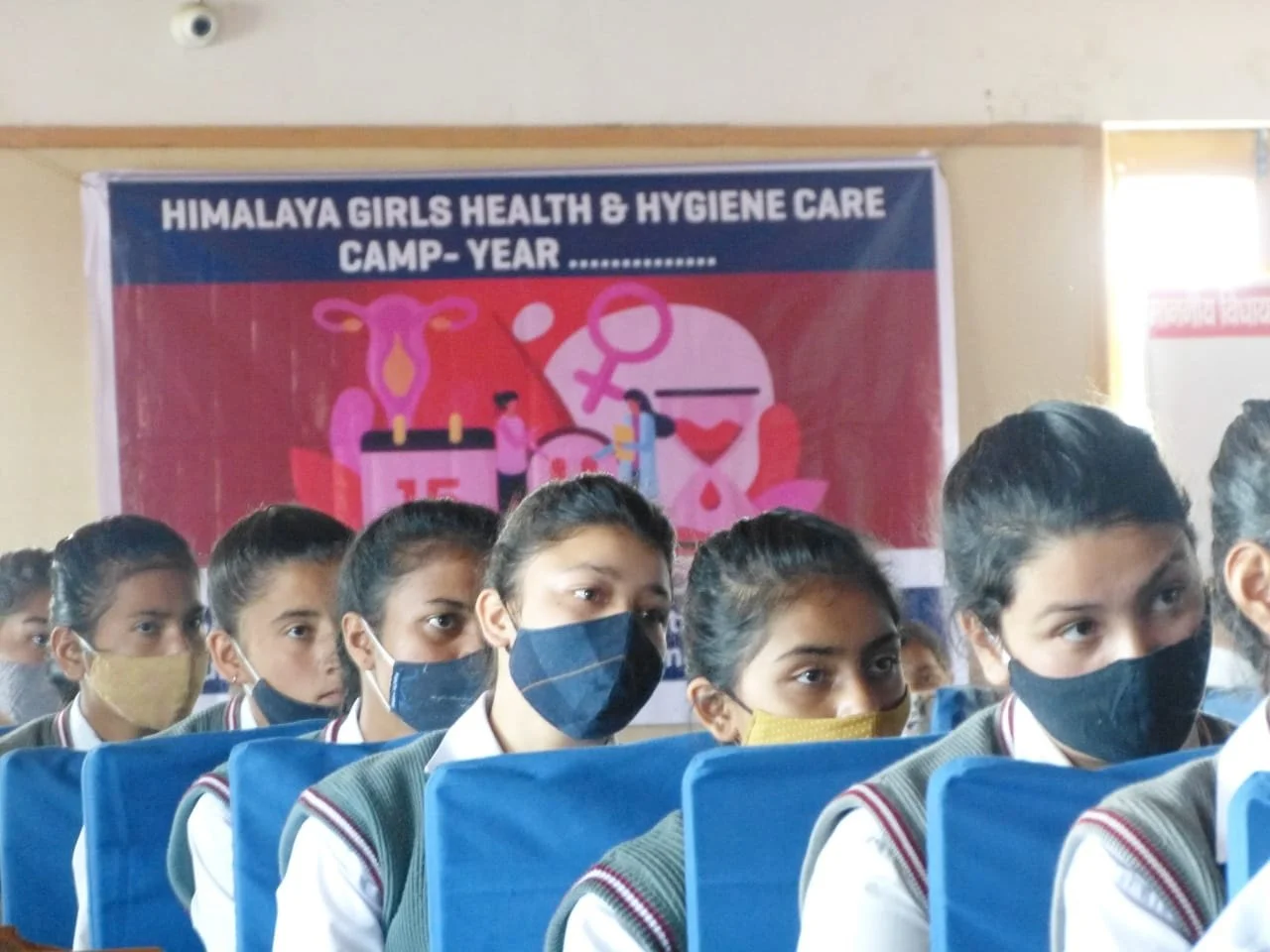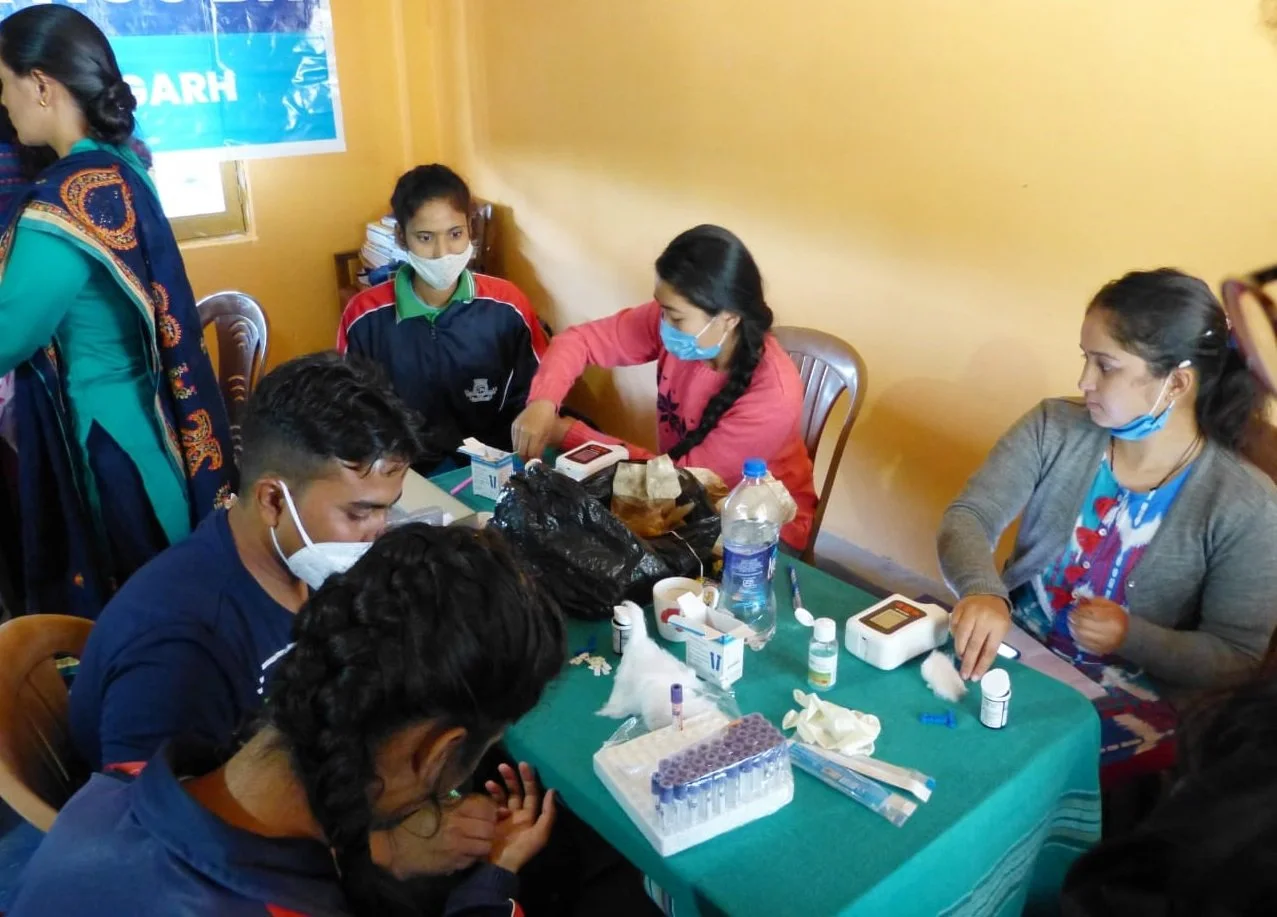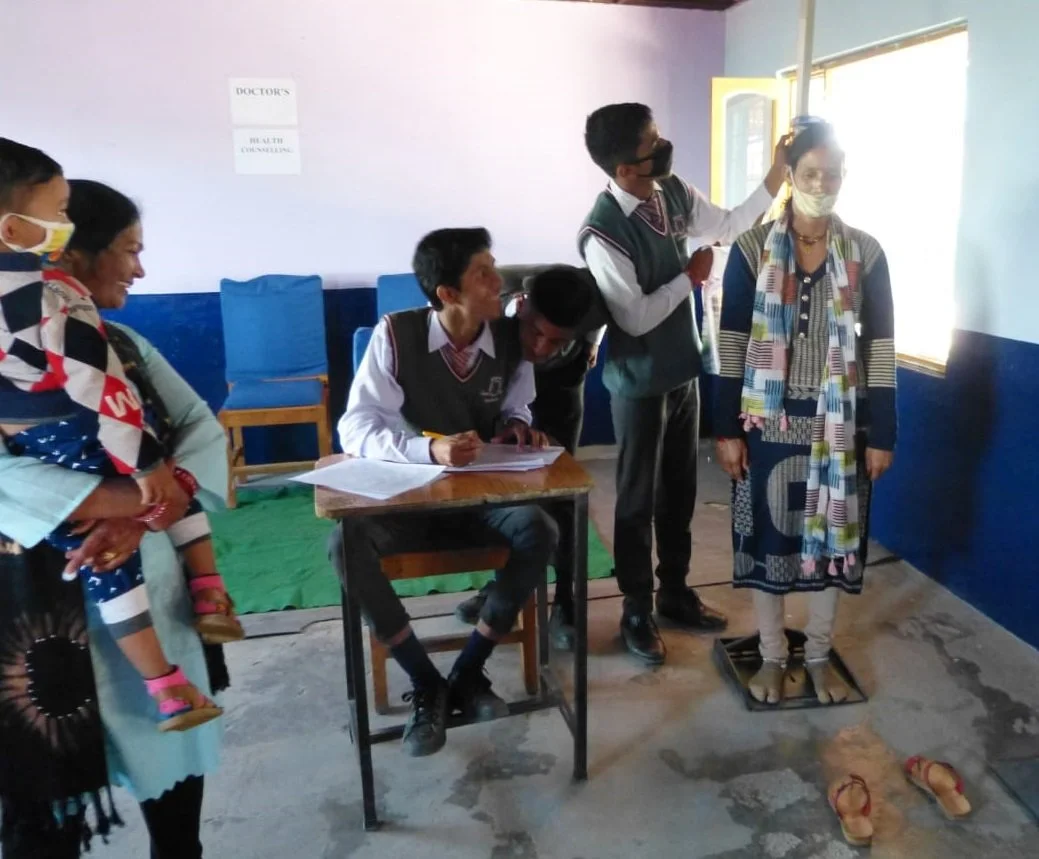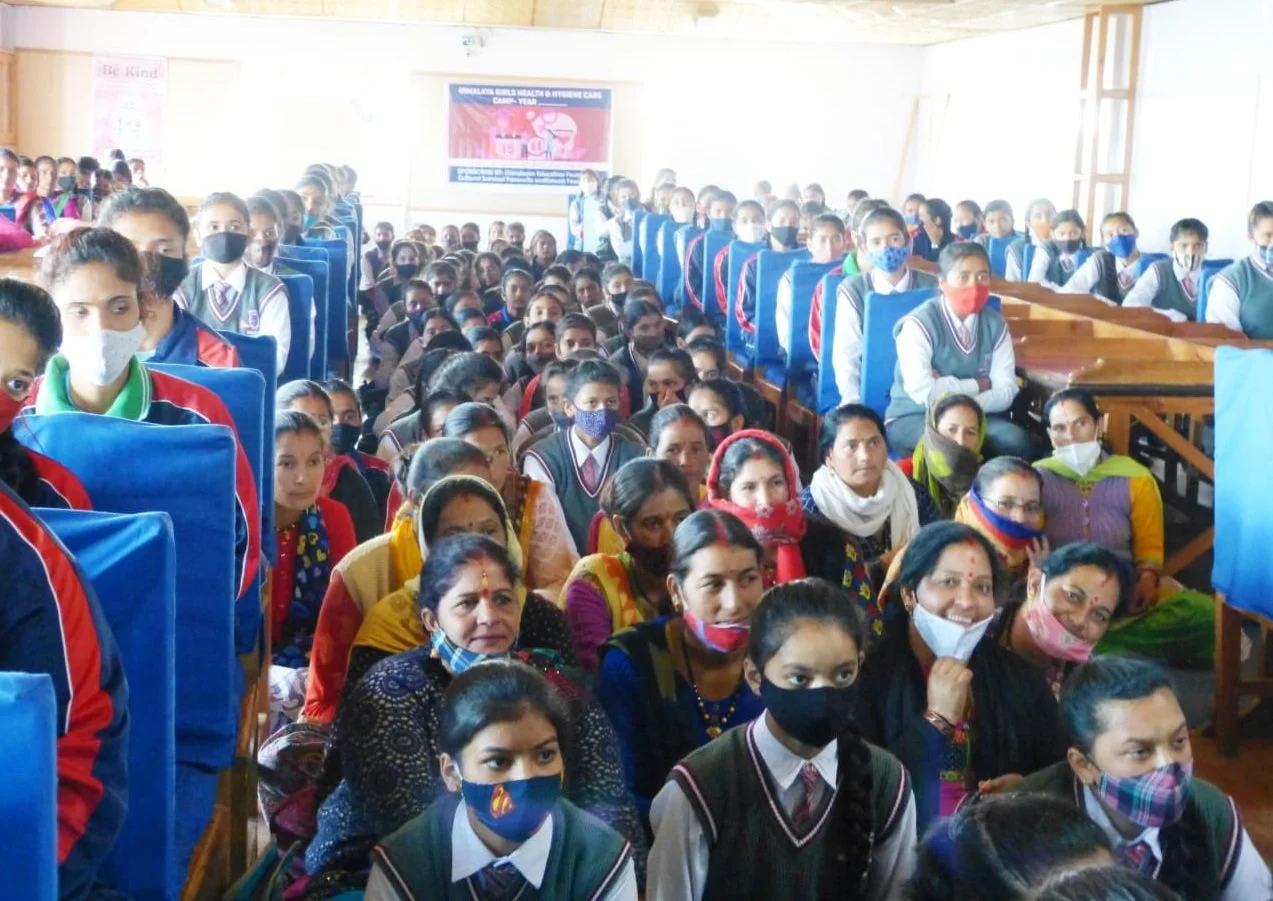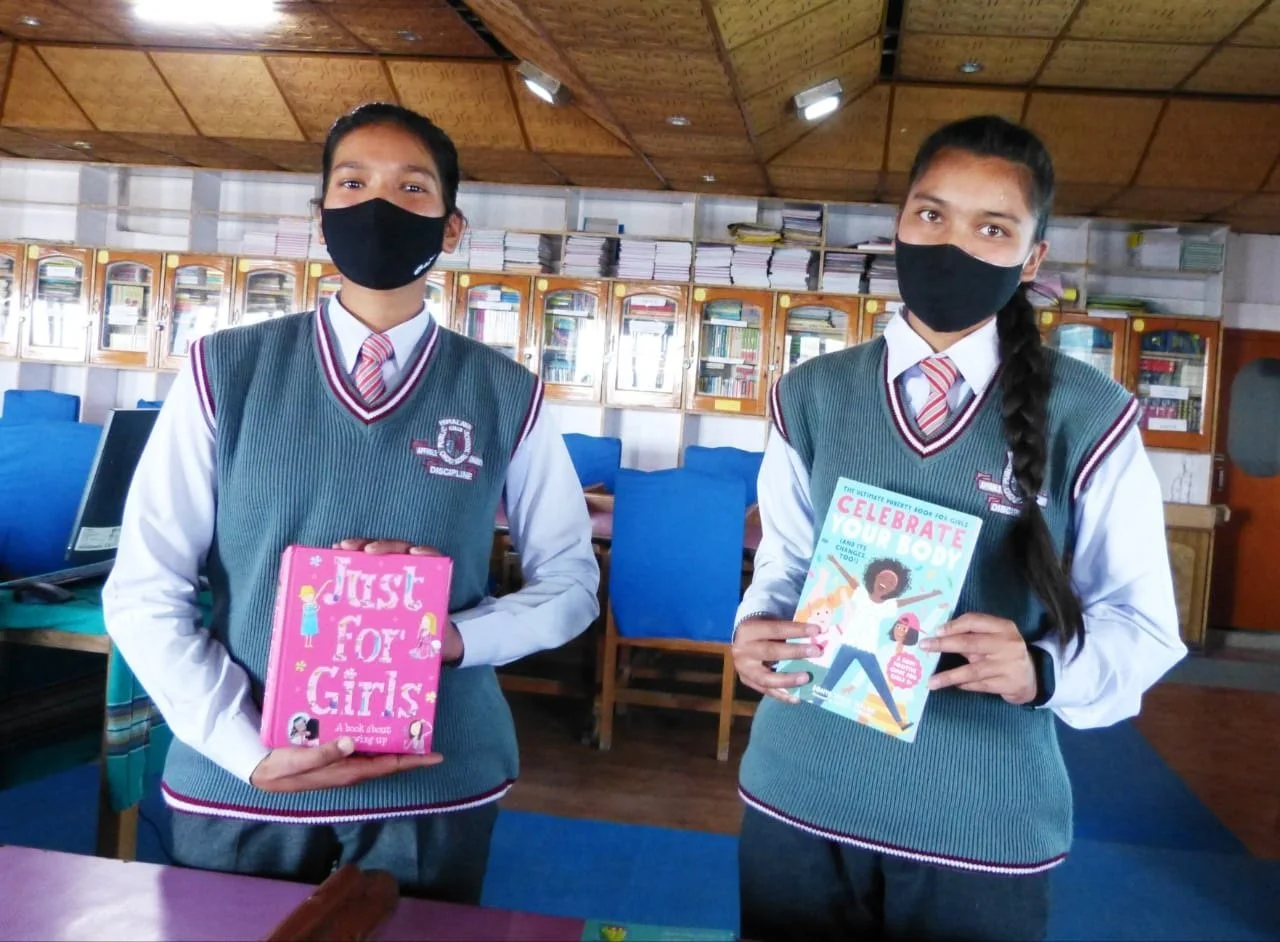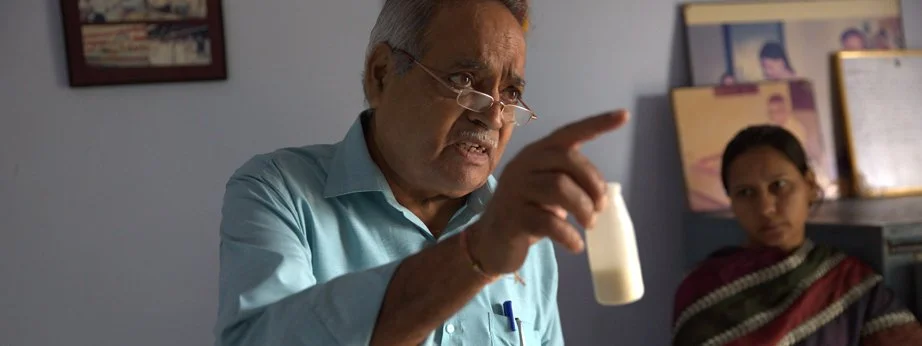
HEALTH &
NUTRITION
Nutrition in Chaukori
After learning that Uttarakhand had higher maternal and infant mortality rates than the national average and that 59% of children under five were anemic, with many suffering stunted growth and undernourishment, HEF prioritized addressing health and nutrition. Nutrition in early childhood has lifelong and intergenerational impacts on health, brain development, and overall well-being.
Our Approach and Outcomes
In 2011, the Himalayan Inter College launched a dairy program with three cows to provide fresh, nutritious milk to hostel students daily. Over time, the herd expanded to ten cows, ensuring a consistent supply of milk rich in protein, calcium, and Vitamin D. This initiative significantly improved the students' nutritional intake.
Building on this success, HEF conducted a comprehensive study in Chaukori to assess food security, diversity, and access, particularly for women of childbearing age and children. The findings guided our targeted interventions, which included:
Nutritional Workshops: Collaborating with schools and families, we held sessions on the importance of balanced diets and proper nutrition.
Supplemental Feeding Programs: We introduced initiatives to improve access to nutrient-rich foods, particularly for women and children.
Sustainable Food Practices: We encouraged families to grow diverse, nutrient-rich crops and provided resources to enhance food security.
Through these efforts, we saw a measurable improvement in the nutritional status of both children and women, empowering the community with tools to sustain better health outcomes for future generations.
Women and Girls Health Project
In our ongoing mission to build healthy and resilient communities in the Himalayan region, HEF partnered with Himalayan Naari, a women’s self-help group based in Chaukori. With generous support from several donor organizations in 2021, we successfully implemented two transformative initiatives.
Medical Camp for Women and Girls
Understanding the critical need for healthcare and health education in rural areas, HEF organized a comprehensive medical camp in October 2021 at the Himalayan Inter College. The camp, conducted by a team of eight health workers led by Dr. Manisha Samant from the Community Health Center in Berinag, provided vital health check-ups and medical tests for 29 Naari members and 178 schoolgirls.
To address specific health concerns, Dr. Manisha, with support from key community leaders, conducted an educational seminar focused on women’s health and hygiene. These sessions equipped participants with essential knowledge to improve their overall well-being.
Menstrual Health and the Pad Project
As part of a holistic approach to women’s health, the initiative prioritized menstrual health education and the promotion of sustainable solutions. Generous support from PaxWorks funded a pilot project to produce washable, reusable menstrual pads. With these funds, Naari purchased a heavy-duty sewing machine and raw materials for pad production.
To jumpstart this project, Siment Foundation donated 400 sample pads for community distribution. The initiative also gained valuable expertise from Julie Phippen, founder of Sewpportive Friends, a global volunteer program supporting marginalized communities. Julie provided training to Naari members in pad production, empowering them to create sustainable menstrual products for the community.
Impact and Achievements
The Women and Girls Health Initiative has significantly improved access to healthcare and health education for women and girls in Chaukori. Key outcomes include:
Improved awareness of women’s health and hygiene through workshops and seminars.
Access to essential health check-ups and medical resources.
Empowerment of Naari women through skills training in pad production, fostering sustainability and community well-being.
HEF is proud to continue building a foundation for healthier communities in the Himalayas, with the dedicated support of our partners and the resilient women of Chaukori. Read more on our blog.


